With an online class, you don't have to drive to campus to attend class. You'll avoid heavy traffic and any bad weather storms. Plus, you'll avoid fuel costs, tolls, and all other expenses typically associated with a commute.
Meet The Expert
Steve Geibel, MBA, M.S.

Steve Geibel currently teaches as an adjunct professor for Southern New Hampshire University where he teaches online courses in brand management, reputation management, integrated marketing communications, and crisis communication. Steve is also a serial entrepreneur who has been in and out of the corporate world for two decades. He currently owns a branding agency called Hype Creative NA. He currently lives in West Virginia with his wife and two children.
As you think about what courses you need to take for your college degree, you may have considered taking online classes. Most universities today offer online classes in a variety of subjects, and schools are experiencing an increase in the number of students taking online courses. In fact, nearly 6.4 million college students (31%) took at least one online course in 2016, which is a 17.1% increase from 2012 (5.4 million). Online classes are a convenient way to complete college courses or even work on a degree, especially if you have a full-time job, a family, or other responsibilities. If you'd like to learn more about online classes, this guide is a helpful resource. You'll learn the answers to questions you may have, such as what an online class actually is, what types of classes are available, advantages of taking online classes, the do's and don'ts, and the online course registration process.
What Is An Online Class?

An online class is a course offered by a college or university that is facilitated over the internet. Some universities also refer to an online class as a distance education course, since you don't have to be physically present in a classroom. Depending on the class, all or part (known as a hybrid course) of your class curriculum can be accessed virtually anytime and anywhere through your computer, laptop, tablet, or smartphone.
How Do Online Classes Work?

Once you've registered for an online course, you can access the content by logging into a virtual portal. Generally, there are lectures you'll be required to either read or watch and assignments to complete each week. Some online classes may also require you to complete research papers and other projects, depending on the professor.
Types of Online Classes
When enrolling in an online class, you'll find that some are entirely online, while others require you to attend class in person for part of the time. Here are several different types of online classes:

Synchronous:
This is 100% online, but requires you and your professor to be online at an exact time for classroom material, similar to a face-to-face class.

Asynchronous:
This is 100% online with no scheduled class time. You can access the content at any time and work at your own pace.

 Hybrid Synchronous:
Hybrid Synchronous:This type of class is a blend of synchronous and in-person instruction.

 Hybrid Asynchronous:
Hybrid Asynchronous:This type of class is a blend of asynchronous and in-person classroom instruction.
Popular Online College Classes

There are many online classes available at colleges and universities, ranging from core classes to specific majors. Here are some popular classes offered at online colleges:
- Advertising
- American Government
- American Literature
- Anthropology
- Art Appreciation
- Biology
- Biochemical Engineering
- Business Writing
- Calculus
- College Algebra
- Digital Imaging
- English Composition
- English Literature
- Foreign Languages
- Graphic Design
- International Marketing
- Interpersonal Communication
- Introduction to Biology
- Introduction to Computing- Java
- Introduction to Business
- Introduction to Sociology
- Introduction to Philosophy
- Introduction to Psychology
- United States History
- Organic Chemistry
- Personal Finance
- Political Science
- Principles of Biology
- Principles of Chemistry
- World History I and II
- World Literature
Top 12 Reasons For Taking Online Classes

Online classes are becoming a preferred alternative to face-to-face courses for many students across the globe. From the convenience and flexibility to not having to quit your full-time job, here are 12 reasons why you should take online classes.
With online classes, you'll get to pocket the money you would have spent on gas and spend it on something else.
This is convenient if you have a family. With no need to get dressed up, you can even study in your pajamas if you want to.
Since you'll be completing your online class during your own personal time, you'll learn how to work efficiently and balance it with any other responsibilities you may have.
In online classes, you can attend class from anywhere, including your living room or a coffee shop. Even if you have to travel for work or go on a vacation, you can still keep up with your class. As long as you have an Internet connection, you will have access to your course materials.
Because online classes are flexible, you may be able to keep your full-time job and complete your classes during your own personal time.
There are several different types of online classes available, ranging from generals and extracurricular courses to your major requirement courses. Each degree level and study area will have their own specific course requirements.
You can potentially be in a class with students from around the United States or even the world, depending on the class. This opportunity will expose you to a wide variety of viewpoints, cultures, and opinions to enhance your learning experience.
Does your local college not have the degree program you want? With an online class, you are no longer limited to a college campus near your home. You can take an online class from a school in another city or state if you want.
Asynchronous courses let you study at your own pace. With this type of online course, you can spend more time on particular concepts if needed.
Responses from a recent 2017 LearningHouse survey found that nearly 90% of online students believe that taking an online class is equal to or better than on-campus classroom study.
In an online course, one of the main ways to speak with your instructor is through the learning management system. In addition, most professors have a set aside a day and time for office hours where you can get your questions or concerns addressed often through an online video conference tool like Adobe Connect or Zoom. Online professors will even provide you with their email address and phone number for immediate questions or concerns. Some may invite you to engage with them on social media or to attend their live Q&A sessions on platforms such as Skype or Facebook.
What to Expect in an Online Class

Once you register for an online class, you can expect the following:
-
You'll gain access to your class materials shortly before your class begins.
Be sure that you familiarize yourself with the class syllabus to learn what content will be discussed and to know what is expected of you. Also, check your school email daily for any other important information and announcements from your professor. -
Each week, you'll typically have a discussion post on a certain topic or prompt that will need to be completed by a certain day and time.
Be sure your discussion post is insightful, thorough, and that you use credible sources to support your post. You may also be required to give insightful responses to a specific number of your classmates' posts as part of your weekly grade.
-
You'll be required to read assigned articles as part of your weekly topic discussion.
These readings will be available to download via your online learning portal. Once your professor has graded it, you will be able to view your grade in the portal as well as read any feedback provided.
-
Throughout the course, you may have weekly projects, such as research papers, on a certain topic.
These projects will be submitted via your online learning portal.
-
You may also get occasional quizzes or exams.
Some schools require exams to be proctored or observed. This means you'll need to go to a local testing site to take your tests or quizzes.
-
Usually, there is a final project to complete.
This can be a final research paper or a presentation, depending on the professor.
Online Classes FAQs
No. Online class curriculum and exams are just as rigorous as in-person classes, as long as they are accredited by a accrediting agency approved by the U.S. Department of Education. This means that if an online program wants to be accredited, it must be evaluated by an agency to ensure it meets certain criteria set by the government to be considered a quality program. Visit this site to find out if the school you're interested in is accredited.
It varies by major and college. Some courses are as little as six weeks or less, while others are 12 weeks or more, depending on the major or college. Check with your school to find out the exact length of your class.
In an online class, you'll use a Learning Management System (LMS), such as Blackboard or Canvas, to ask questions and make comments to other students on weekly discussion boards. You can also establish rapport by connecting with your fellow classmates on social media, email, or by phone.
For an online class, you just need basic computer skills. You will need to know how to navigate the Internet, how to access your email, upload attachments, and download files. It will also be helpful to know and how to use basic computer programs like Microsoft Office (especially Word), since you'll likely be doing some writing assignments.
Many people enjoy the online experience, and you might as well. However, some students decide that the setting isn't ideal for them.
If you aren't sure if an online class is the right fit for you, look into a university that offers a trial class to see if you like it. For example, colleges like Capella University allow you to take a free trial course to familiarize yourself with the online learning experience. Another example is Purdue University Global, where you can take the first three weeks of a course for free with no obligation to pay the tuition and fees.
The Do's and Don'ts of Online Classes

When it comes to online classes, there is often a learning curve involved. Be sure to click on the Do's and Don'ts below to ensure you have a pleasant experience with online courses.
- Have a reliable Internet connection and computer. You can't complete your class without these tools.
- Plan to set aside at least a few hours a week to study for each class.
- Carefully review your course syllabus, deadlines, assignments, and other content so you'll know what to expect.
- Log in to your class daily to stay on top of your assignments and to see if your professor has emailed you any important information.
- Pay attention to your professor's feedback on your graded assignments. This can be valuable in helping you improve your grade throughout the course and may provide opportunities for additional learning.
- Procrastinate with your class. It's easy to get behind if you aren't keeping track of your assignments and discussion board requirements.
- Let your fear of contacting your professor or other students in your class stop you from reaching out to them. If you need help, more explanation about something, or want to discuss a topic that's covered in the reading material, just ask.
- Be unprofessional. Be sure to stay away from personal experiences, drama, jokes, or sarcastic remarks, as this may affect your grade and reputation in the class.
- Get discouraged if it takes a few weeks to get used to an online class. Remember that there's a learning curve, so be patient with yourself as you try to navigate the learning management system and the online educational experience.
- Plagiarize other people's work. Doing so can cause you to fail the course and can even result in suspension or expulsion from the college.
How to Apply for Online Classes

Once you select and get accepted into a university program, you can begin registering for online classes. In general, here are the steps you need to take to accomplish this:
- Find or request the application for the college or university program you are interested in.
- Fill out the colllege applicable with complete information as honestly as you can.
- Gather and submit all required information and documents, such as transcripts, essays, and test scores.
- Ask those that you respect and who respect if they would write you a letter of recommendation.
- Once all that is compiled, submit your application and other applicable attachments.
- Search online and talk with a guidance counselor for information about financial aid and scholarship opportunities that you may qualify for to help pay for your tuition, housing, and other fees.
- Submit your government financial aid and scholarship applications.
How to Register for Online Classes

Once you apply for and get accepted into a university program, you can begin registering for online classes. In general, here are the steps you need to take to accomplish this:
- Once you are accepted into your university, you will receive instructions on how to register for your online classes via your school account.
- Talk with your guidance counselor about what classes you need for your desired career field.
- Select the online classes you want to take and try to get added to your desired class times.
- Review your schedule to ensure its correct and doable.
- Submit any further acceptance information for financial aid or scholarships.
Cost of Online Classes

The cost of an online class is an important factor in deciding which university you want to attend. Often, the cost can range from $500 to $1,200 for a three-credit class. Ultimately, be sure you are selecting a university that is affordable for you.
Traditionally, in-state tuition is cheaper than out-of-state tuition, which may be something you'll want to consider. In addition, the cost may vary between undergraduate and graduate classes.
The good news is that online classes can save you money in many ways compared to on-campus courses. For example, you don't have to pay for room and board or transportation. In addition, some colleges and universities may waive certain fees for students who enroll in online classes, such as for student health services, campus life, and transportation. Check with your university to see if such waivers are offered.
A Day in the Life of An Online Class Student

Marci Nauman is a Doctor of Business Administration degree student at Liberty University Online. The university is headquartered in Lynchburg, Virginia, but Marci is working on an online program from her home in Bradenton, Florida. She provides the perspective of what it's like to be a student of an online class.
Why did you choose to study at Liberty University Online?
"I chose Liberty because it is accredited, not-for-profit, and has a faith component which aligns with my values. Working on this program is also a natural fit for me because I completed my master's degree in integrated marketing communications online with West Virginia University."
What degree level and type are you pursuing and, if applicable, what is the emphasis?
"I am about halfway through a Doctor of Business Administration degree in the marketing cognate. It is similar to an MBA but is a terminal degree. It is different from a PhD in that it is focused on real-world application as opposed to generating new theory. This differentiation appealed to me as a working professional who wanted to apply what I learn to my job."
Why did you want to earn this degree online?
"I work full-time and have a family and personal obligations that would make attending class in person difficult. I needed the flexibility to complete my coursework according to my own schedule, whether over my lunch break, first thing in the morning, or at night after my kids go to bed. While this means taking a different approach to learning, I was willing to make adjustments in order to achieve my educational goals without sacrificing too many personal ones."
Are you able to earn your degree completely online or are there required on-campus classes or aspects to your degree?
"My program offers a completely online option but offers opportunities to complete on-campus intensives if desired (not required). I personally chose to begin the program with an on-campus intensive in order to meet some of the faculty, other classmates, and see the campus in person. This helped me feel like I was part of a community and facilitated relationship building, which has proven to be beneficial in the first half of the program. I recently spoke to a classmate who did not attend the on-campus intensive and she expressed that she plans to attend the next on-campus session because she feels like she is missing some of the relationships and connectedness that I have."
What is the total amount of time that it will take you to finish your degree?
"I will complete my coursework in just under two years and will take another year or so to complete the dissertation. If all goes well, I will complete my doctorate in 3.5 years, which is pretty incredible to think about."
Describe a typical day in an online class. What does a typical week look like as well?
"There really is not a typical day, which is why I chose an online program. Each day can flex depending on my schedule. However, I do make sure I look at upcoming assignments/deadlines over the weekend and plan what I can accomplish each day depending on my obligations. One day I may only get to read one chapter of assigned reading, while another day I might write an entire paper.
A typical week includes reading a chapter or two from a textbook, maybe watching a video on the subject, actively engaging in a discussion board, conducting research for a paper on the school's online library, and writing a paper. I try to build in one homework-free day each week if possible, so I can get some time to relax, rejuvenate, and spend time with friends and family. This planning helps me feel confident that I will accomplish everything without feeling overwhelmed.
"
What tools do you think are necessary to succeed in an online class?
"As far as personal tools go, self-motivation, connectedness, and a plan for overcoming obstacles are critical for long-term success. Online courses require, by nature, self-direction. There is not a professor or classmates physically in front of you to ask questions or remind you of due dates. As the student, you need to be able to motivate yourself to complete the work and not be afraid to ask questions.
Connecting with classmates is also important, especially in those moments of self-doubt and feeling overwhelmed. There WILL be time when you want to give up. Maybe you get sick, things are stressful at work or at home, maybe you move across the street or across the country, maybe you start a new job. When you're talking about a multiple-year degree, you must plan for the inevitable, have a support system, and not let it derail you.
In terms of technical tools, most universities offer an online library with access to journals for research but also assistance with conducting research, learning citation styles, etc. Learn how to use your library! Additionally, find out what other services are offered, take advantage of tutoring, advising, career counseling, etc. I have found that using Dropbox or Google Drive to store my assignments, notes/thoughts, and class-related documents is quite helpful for staying organized regardless of where I am. For my dissertation, it was recommended that we use End Note to keep track of all of our research.
"
What are some of the expectations of your online classes?
"I can't state enough that with online courses it is expected that you will manage yourself and your time. The professors do not generally check in with you or remind you of deadlines. It is also expected that you know how to navigate an online environment and learn the tools you are required to use on your own. If you do not know how to access the library, they expect that you will ask for help. They also expect that you are polite and facilitate a positive learning environment.
We get used to having anonymity on the web. Posting comments on blogs and social media that maybe we wouldn't say to someone's face. In an academic setting, they expect you to be respectful. If you disagree with someone, that is okay as long as you can back up your own viewpoints with research.
"
Do you face any challenges in your online classes? If so, what are they?
"I recently completed a statistics course online. That was by far the hardest course I have ever taken, and there was virtually no direction given. Just read the text and complete the assignments. When I asked for help, I was told to connect with my classmates and work together to solve the problems. So, yes, there are challenges.
It is hard to make connections virtually. For the stats class, we set up a weekly conference call where we could share our screens and walk through the problems. So, technology helps, but it's not the same as sitting together in a library or coffee shop and going through things in person.
It is hard to not have an instructor in the room where you can raise your hand and get an immediate response. I can send an email or schedule a time to talk on the phone, but it is never immediate.
"
What would you say are the positives of taking online classes?
"The biggest positive is flexibility - that I can work on my assignments according to when I have time, not when the professor and classroom are available. I don't have to drive to campus after work when I'm exhausted and spend 3 hours in a classroom twice a week. If I've had a terrible day at work and just want to go home and relax for an hour (or three) before diving into my assignment, I can."
What would you recommend to others if they want to succeed in an online learning environment?
"Find a friend and make a plan. Find a classmate you connect with, at least a little bit, to be a support system. Exchange mobile numbers so you can text or call when you need help - trust me, relying on them to check their school email when you're in a meltdown is not going to be helpful. Make a plan for your time, including work, school, family, and fun.
Another thing, and it is vital, make sure your family is supportive. If you have a spouse or significant other who isn't 100% on board with your goals, you will have a difficult time. Sit down and talk with your spouse, your kids, and anyone else significant in your life. Explain why you want to go back to school, what it means in terms of your available time, and get their blessing. That is not to say you can ignore your family for 2 or 3 years. They have to be part of that plan I mentioned. But when you're stressed out because you don't understand the assignment and you haven't heard back from your professor and your friend isn't texting you back, you will need them to be understanding. When you have a deadline and you're overwhelmed and the online library is down for maintenance (trust me, it happens), you will need your family to understand. Quite honestly, I feel like my family will be deserving of honorary degrees at the end of this program.
"
Would you recommend other students take their classes online? Why or why not?
"If a student can a good self-learner, is tech-savvy, and a good manager of their time, yes. If a face-to-face class is a viable option, I still believe it is a better learning environment for most people. It really depends on the person - their personality, their learning style, their obligations, and their goals.
I made lifelong friends in my traditional on-campus undergraduate experience that I wouldn't trade for anything. But as an adult with work and family, it won't work. Online courses, for me, make it possible to achieve my academic goals without sacrificing the other things that are important to me. Without an online program, I simply wouldn't be able to earn my DBA."
Expert Advice on Online Classes

Steve Geibel, MBA, M.S.
Steve Geibel currently teaches as an adjunct professor for Southern New Hampshire University where he teaches online courses in brand management, reputation management, integrated marketing communications, and crisis communication. Steve is also a serial entrepreneur who has been in and out of the corporate world for two decades. He currently owns a branding agency called Hype Creative NA. He currently lives in West Virginia with his wife and two children.
In your opinion, does an online class differ from a traditional on-campus course and if so, how?
"In terms of the material covered, no. In terms of collaboration, yes. Business is about relationships and scenarios in which students have to work together are beneficial for operating in a larger corporate environment later."
What is the format of the class(es) you teach (asynchronous, synchronous, hybrid asynchronous, hybrid synchronous, independent study)?
"Asynchronous"
What do you like about teaching online?
"I like that it fits into my schedule, but I can still be readily available to students if they need me."
What do you not like about teaching online?
"Not having a more personal connection with the students. Although I do go out of my way to get to know them as much as the platform will allow."
Are there any challenges you face in your online class(es) or with your online students? If so, why?
"Some students don't take the process as seriously because of the disconnect between the student and the class. Some are not quite ready to be 100% responsible for themselves, and disregard deadlines more readily than if they had to hand a paper to an instructor."
If you have students that struggle in your online classes, what do you do to help them?
"I reach out to the stragglers on a weekly basis to bring them up to date in terms of their grade and to answer any questions about the materials. I am also famous for letting students rewrite papers when they have gone too far afield. I also address sticking points and tricky material in open announcements and through the general discussion forum."
In your experience, how can students succeed in an online class?
"READ ALL of the materials, do outside research, and BUDGET your time. It's not that hard"
Which tools are available to help students succeed in an online learning environment?
"Each school provides students with a plethora of writing resources, outside case studies, and class materials that will augment their regular reading. In my case, I am available to students 24/7 and will often answer their inquiries within 3 to 4 hours."
Do you feel that there are certain types of classes that are not better administered in the online format than in the traditional or vice versa?
"There are certain classes that aren't survey classes, or purely academic in nature that I don't feel would translate as well. Public speaking, debate, legal procedure, etc., need to be taught in an on-campus, interactive environment."
Online Classes Resources
Use these following resources to explore more information on online classes:
- The Ultimate Online Colleges Guide - Use this guide to assist you as you research online degree programs, schools, costs, and application information, as well as to determine if an online college is right for you.
- Database of Accredited Postsecondary Institutions and Programs - U.S. Department of Education - This database will tell you which universities and programs are accredited as being high quality by meeting certain standards and requirements set by agencies approved U.S. Department of Education.
- Federal Student Aid. U.S. Department of Education - Use this to apply for federal financial aid to help you pay for college.
- U.S. Department of Education - College Scorecard - This site lets you compare colleges by program/degree, location, and school size to see which one is the best fit for you.
- Federal Student Grant Programs - Learn about the different types of federal student grant options available and the qualifications for each.
